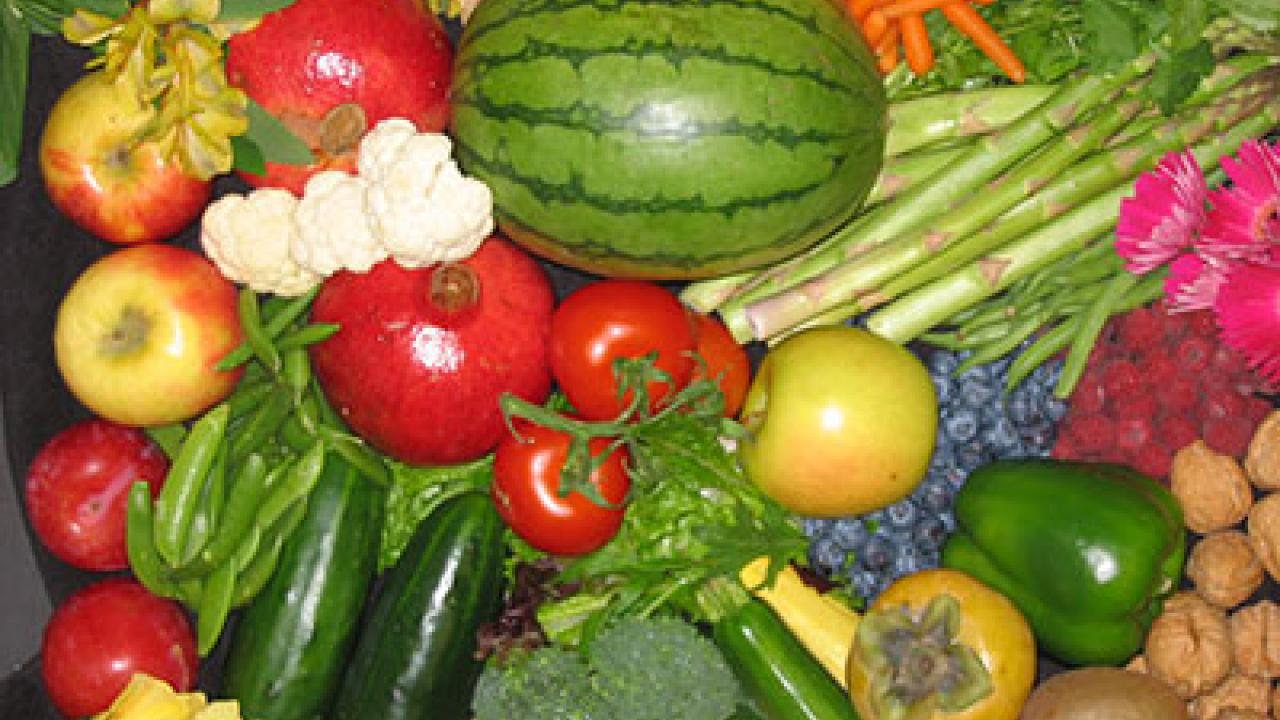
Postharvest Technology Short Course provides excellent overview
People who work on fresh produce quality, safety and marketability will find answers to the complicated questions they face during the 35th annual Postharvest Technology of Horticultural Crops Short Course at UC Davis June 17–28.
People who work on fresh produce quality, safety and marketability face complicated questions. How can I find a greener way to protect my crops from pests during transport? How long can I store my bountiful crop and at what temperature so it will still be marketable next month? What’s being done to improve the flavor of fresh fruit?
These questions and many, many more will be answered during the 35th annual Postharvest Technology of Horticultural Crops Short Course at UC Davis June 17–28, an intensive two-week study of the biology and latest technologies for handling fruits, nuts, vegetables and ornamentals in California.
“It’s a very valuable course,” said Mohit Bansal, food technologist with Earthbound Farms Organic in San Juan Bautista who attended the short course two years ago. “It provides an excellent overview of everything you need to know about postharvest technology, taught by leading experts in the field.”
The first week of the course features lectures, discussions and hands-on laboratory sessions on topics like harvesting systems; cooling, storing and transport methods; safety factors; ethylene; energy use; and virtually everything research, extension, quality control, business, academic and governmental professionals need to know.
For the optional second week, participants visit fields, packing houses, cooling and storage facilities, produce distribution centers, and transportation centers throughout California, home to some 400 different commodities.
“It’s a wonderful tour,” Bansal said. “It’s great to see the best postharvest procedures in action.”
The course is led by a team of experts, including faculty member Elizabeth Mitcham, director of the UC Davis Postharvest Technology Center. Bansal says networking with the experts, and fellow participants, helped advance his career.
“It’s invaluable to meet with professors and others in the industry,” Bansal said. “I’m now working on a research project with Marita Cantwell, a Cooperative Extension vegetable specialist at UC Davis, who I met at the Postharvest Technology Short Course two years ago.”
The enrollment fee for the first week is $1,895, which includes all classroom instruction, lab activities, course materials, morning and afternoon coffee breaks, lunches Monday through Friday, and one barbeque dinner. Enrollment for both weeks is $2,895, which includes all week-one activities, plus field tour transportation and continental breakfasts Monday through Friday during the tour.
Enrollment is limited. For details and to register, go to http://postharvest.ucdavis.edu/Education/PTShortCourse/
Media contact:
- Diane Nelson, UC Davis College of Agricultural and Environmental Sciences, (530) 752-1969, denelson@ucdavis.edu